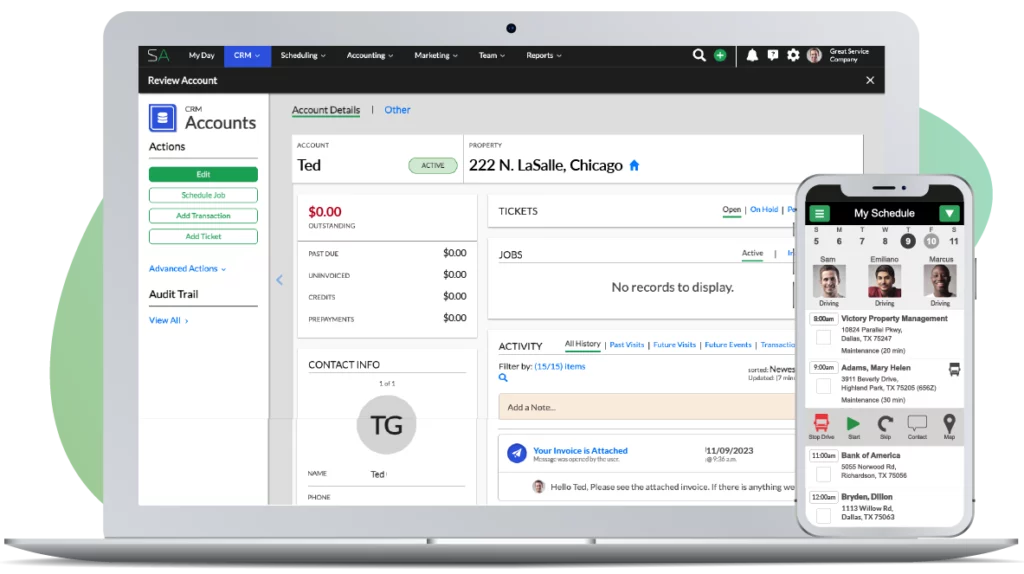Jonathan:
This question is in regards to someone asking about some successful marketing last year. As an example, they went through the spring months … It’s a long email to me. They went through the spring months. They did a lot of digital marketing, SEO, Facebook, things of that sort. They ended up with so many leads that they wanted to turn off their SEO, or they wanted to cut back on Facebook. Basically, they wanted to stop their marketing during a point in spring because they couldn’t handle all the phone calls and all the leads. They’re asking what to do. My advice is not to stop your digital marketing efforts. Sure, if you’re doing Google AdWords pay-per-click, you can cut back those campaigns or pause those campaigns. But I speak specifically to anything around optimizing your website, whether it’d be traditional SEO, or it might be recording marketing videos for your website, or writing blog posts. Don’t stop those efforts because they build the long-term viability on your website from a search engine standpoint, meaning that you’ll be found.
That’s an ongoing investment you want to continue. Coming out of spring, spring is always great. In this booming economy, for most of it, it’s great. It’s growing, growing, growing. Then, towards the end of Spring, the work falls off, and our year, to some degree has set. We’ll continue to acquire more clients throughout the year, but at a lot slower pace. If you shut off all your marketing, that’s going to exacerbate the problem when the marketing leads start to decline moving into summer months. My suggestion would be this, instead of cutting back your marketing, I would think about things such as raising prices or cherry-picking the work. I was looking at my notes here. Let me explain those two ideas. From the idea of raising prices, if you don’t advertise pricing on your website, you can simply just start quoting a higher price for lawn care service to clients calling in after you can’t handle much new work.
I want to be clear. I’m not talking about being unfair or price gouging. I’m not talking about taking advantage of the client. The reality is, the majority of us do not charge enough for the services we’re providing. If we have insurance, and we are operating at a very high level of quality, if we have great customer service, this stuff costs a lot of money. Most of us are not pricing correctly. As a result, there is room to raise your price, and you’ll get it in many cases. There’s no better time to prove that to yourself, there’s no better time to take advantage of the market opportunity. I don’t mean advantage in a negative way. I mean you have this opportunity where you have too much work. There’s nothing wrong with saying, “Okay. If we’re going to take any additional work, we need to be paid fairly for it, and we’re going to raise our prices a bit. Some number of prospective clients won’t do business with us, that’s fine. I’m going to keep their name and address, and market to them down the road.”
For those that are not worried about price, they just want great quality, great customer service, you’re going to deliver that to them, and you’re going to charge a bit more. You’re able to somewhat filter out the majority of the leads, and just take the best leads. There’s absolutely nothing unethical or wrong about such a thing. Because I’m not talking about price gouging. You can also cherry-pick. Another example would be, you could decide, “I’m only going to take clients that buy these three services from me.” Instead of just taking a client that only buys one service, you’re going to simply tell clients, “Hey. We’re pretty much full right now. Unfortunately, the only …” You’re going to tell leads this, “The only clients we’re able to bring onboard right now are those that sign up for these three services or these two services. ” It acts as a filtering mechanism. There’s nothing wrong about that. It’s your business. You can build it in whatever way you want to build it.
As long as you’re ethical and honest, and you’re doing the client right, there’s nothing wrong with that. You’re not obligated to take every client or every lead. I’d encourage you, if you have too much work, don’t shut off your marketing. Be creative and say, “Okay. We’re only taking clients of this type right now that buy these services.” I would encourage you to make those services the ones that are more easy for you to perform, they’re ones that you have team members to perform that service, and they’re very well-trained, and they’re services that are a bit more profitable. Because with that extra profit, you’ll be able to reinvest in quality, you’ll be able to reinvest in customer service, and you’ll be able to eventually reinvest in marketing. Just be savvy about the approach. Don’t cut back your marketing. Because if you do, you’re going to have these highs and lows in your business, and it’s never going to end.
Whereas, if you keep the SEO, you keep the digital marketing going, and within reason … As I said earlier, there’s some marketing you might want to cut back. There’s no reason to pay for clicks on Google AdWords that are very expensive if you can’t fulfill the work. Or you’re going to cherry-pick it to such a degree that you’re going to get a very low close ratio, and therefore your cost of acquisition skyrockets. But keep investing in those other items, and just be creative about which clients you take. Then, keep records of every client or lead … I keep saying client. Every lead that contacted you that you were not able to close, or you weren’t right for right now, or you turned them away. If you want them, keep a record of them, and go back and market to them mid-summer when you have capacity, and try to win them back. You paid to acquire those leads, you might as well try to capitalize on them again later in the year. Thanks.
Podcast: Play in new window | Download
Subscribe: RSS


